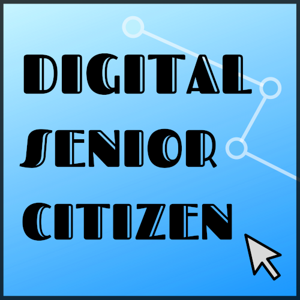New Opportunities for Low-skilled adults to acquire essential skills and in response to the recent migration movement across EU and the effects that it has on social inclusion, access and participation, the SENIORS GO DIGITAL project pioneers to design, implement, monitor and evaluate a TOOL KIT that will support organisations and authorities to design, develop and monitor their own INCLUSIVE STRATEGIES based on their needs in order:
This project aims to:
- to offer disadvantaged seniors opportunities to acquire, re-skill or up-skill their digital competences in order to be able to become active citizens and socially included in the digital world.
- to design, implement, monitor and evaluate a TOOL KIT that will re-skill or up-skill seniors’ digital competences to guarantee their activeness, social presence, e- governance, e-access, e-participation and personal development.
- to pilot-test the ‘ONE STOP SUPPORT CENTRES’ in partner countries, both online and in-house that will offer various innovative, targeted and high quality lifelong learning opportunities for the acquisition of digital skills and competences.
- to support in a systemic way active aging, access, social inclusion, participation and personal development through the use of the digitalized learning eco-system, as well as through the e-services, e-governance, e-participation and e-communication provided in each partner country.
- to upgrade the lifelong learning opportunities provided by adult organisations, as well as enhance the teaching material and resources used in order to meet the needs of senior citizens.
Target groups:
- direct: adults 60+ (seniors) retired, unemployed, marginalised, in rural areas, with few opportunities, low-skilled etc.
- indirect: adult educators and related organisations in the field of adult education such as NGOs, VET centres etc.
Results:
- Reports: research reports (from Italia, Sweden, Bulgaria, Cyprus and Greece) to identify the seniors’ profiles and needs in relation to the current scene in each country and 1 comparative report with the main findings to map the provision, gaps and challenges of adult learning for digital active aging.
- Teaching and learning material: a report which presents principles and guidelines for designing Guidebooks, e-learning material in relation to the needs of seniors’ citizens and the curriculum. The curriculum consists of 5 modules:
- Compuer Basics and Problem Solving
- Communication and Collaboration
- Safety
- Information and Data Literacy
- Digital Content Creation
which have been translated in each partner language and a guidebook is provided for the e-Services in each partner country. The training course was written along with checklists for the course creator and the adult educator concerning the development and the delivery of teaching material.
- E-learning platform and the eco-system for the assessment and validation process: http://seniorsgodigital.iit.demokritos.gr/
- TOOL KIT for developing, implementing and monitoring innovative strategies for offering and supporting the up-skilling programmes
The project Partnership includes organizations from Bulgaria, Cyprus, Greece, Italy and Sweden,
This project has been funded with support from the European Commission under Erasmus+ Programme.
Source: https://seniorsgodigital.eu
Access date: 04.12.2020

